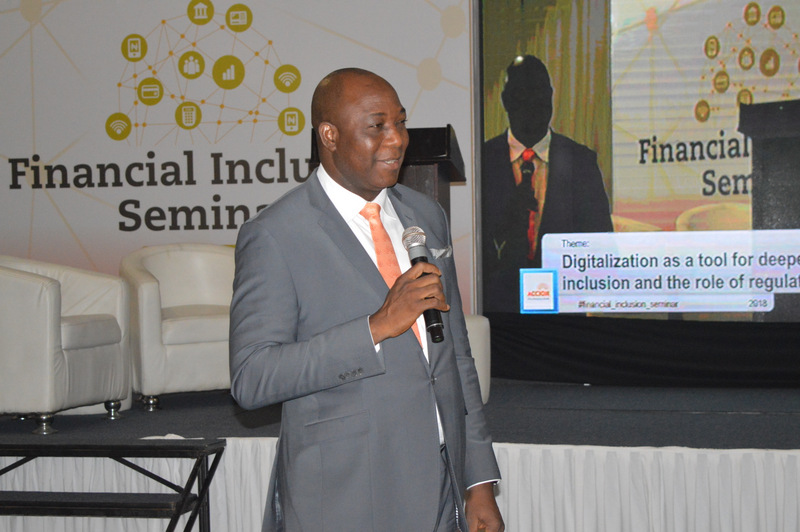BUSINESS
80 per cent financial inclusion target achievable — Akinwuntan

The Board Chairman, ACCION Microfinance Bank, Mr Patrick Akinwuntan, says the 80 per cent financial inclusion target by 2020 is achievable given the enabling environment provided by the federal government.
Akinwuntan said this while delivering an address at the 2019 Financial Inclusion seminar organised by the microfinance bank in Lagos.
It was reported that the seminar had as its theme, “Re-Emerging Microfinance Bank: Digital Reality.”
He said that the Federal Government through the Central Bank of Nigeria (CBN) and the Chartered Institute of Bankers of Nigeria (CIBN) was providing an enabling and positive environment to implement financial inclusion.
The board chairman said that ACCION Microfinance Bank would scale up its digital platform in deepening financial inclusion in line with the target.
“Today is a great day because it is about deepening and leveraging on digital platform to bring financial inclusion to every household.
“It is our right to lead the discussion on financial inclusion which is why we set this leadership series up.
“We are also optimistic that with what the Federal Government is doing through the CBN, CIBN to provide an enabling and positive environment to actually implement financial inclusion, we should achieve the target of 80 per cent by 2020,” he said.
Also, Prof. Yinka David-West, Academic Director, Lagos Business School, in her lecture, titled :Developing a Digital Mindset -Attracting and Retaining Skills, said the nation was presently living in the fourth industrial revolution.
David-West explained that the fourth industrial revolution is all about digital technology, job mobility and biology technology.
“In the world we live today, we are thinking of how to do things in a lean and mean environment,’’she said.
According to her, digital technology has created new economic model that we must be mindful of, because typically, the economic model we had been working with was lenient.
“The economic model we are used to, starts from the production and flows to distribution; but it doesn’t work like that anymore,” she said.
The Professor noted that what the digital technology model was doing was creating and changing the nature of work.
“The changes concern everyone because we are in the productive economy and our work is threatened.
“There are many jobs we do that robots can do without human beings.
“We must be mindful that work is gradually evolving and in the technology pace which is faster and cheaper,” she said.
According to her, financial inclusion is about merging technology with productivity from a different perspective because work is not about effort but output.
David -West said: “Financial inclusion is about how we change the mindset of ‘I came to work for eight hours to rather or to’ I came to work for eight hours and I accomplished the following”.
She, however, said that though digital technology was good, because it was about buying the assets, people must be empowered to use it, so that it would not be wasted.
The Professor said that a fusion between man and machine must be built, to get the needed outcome.
“Digital technology should not be delegated to the Chief Executive Officers or Information Technology (IT) managers, but inclusive.
“Because people are the biggest saboteurs of digital projects, we must build their capacity.
“Individuals must be creative on how they use their tools through curiosity and inquisitiveness, as many are not using their tools effectively enough.
“We must also ensure safety online to ensure that the system within the work space is not exposed to vulnerability,” she said.




 Davido's Net Worth & Lifestyle
Davido's Net Worth & Lifestyle 
